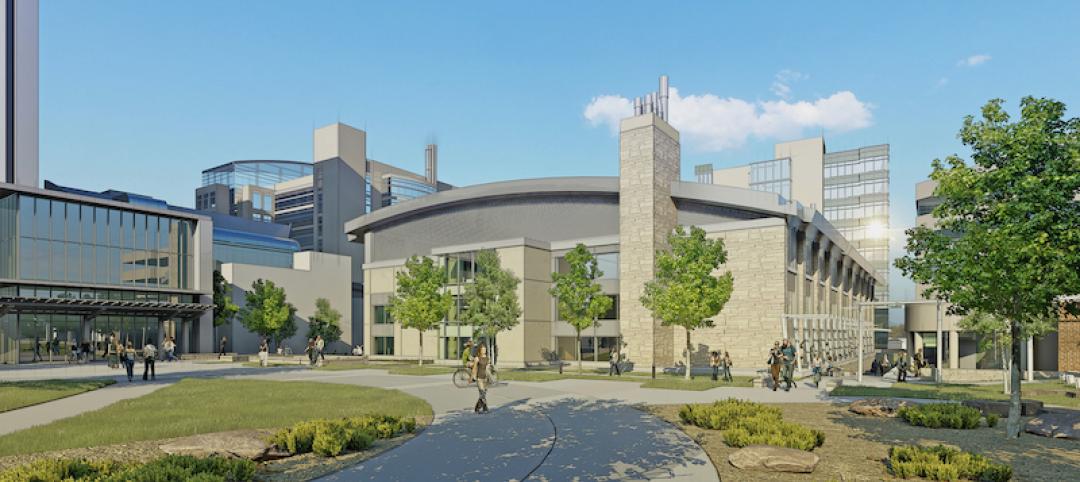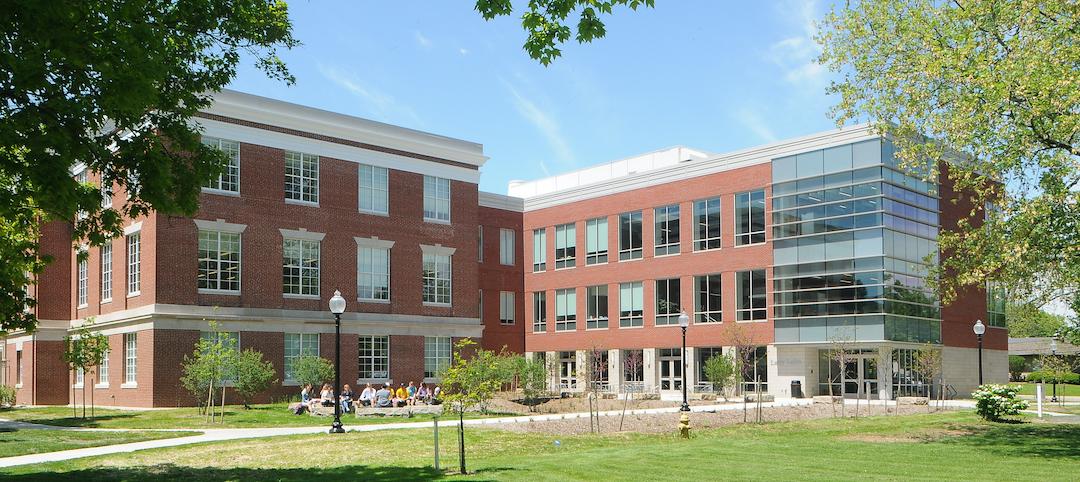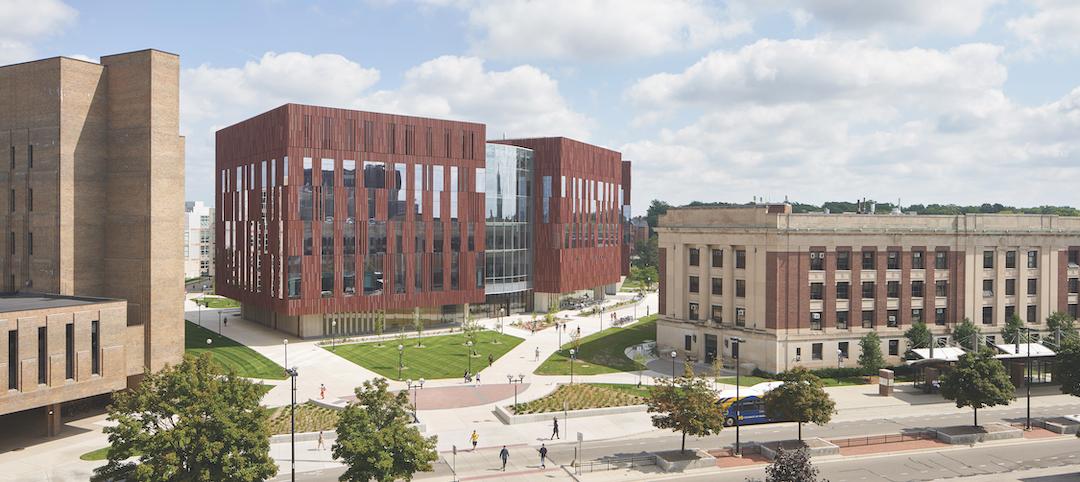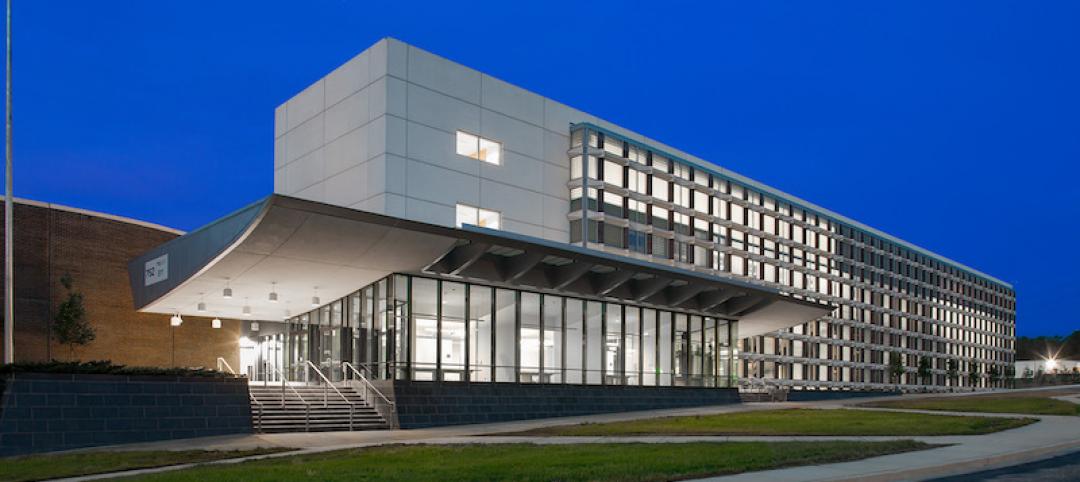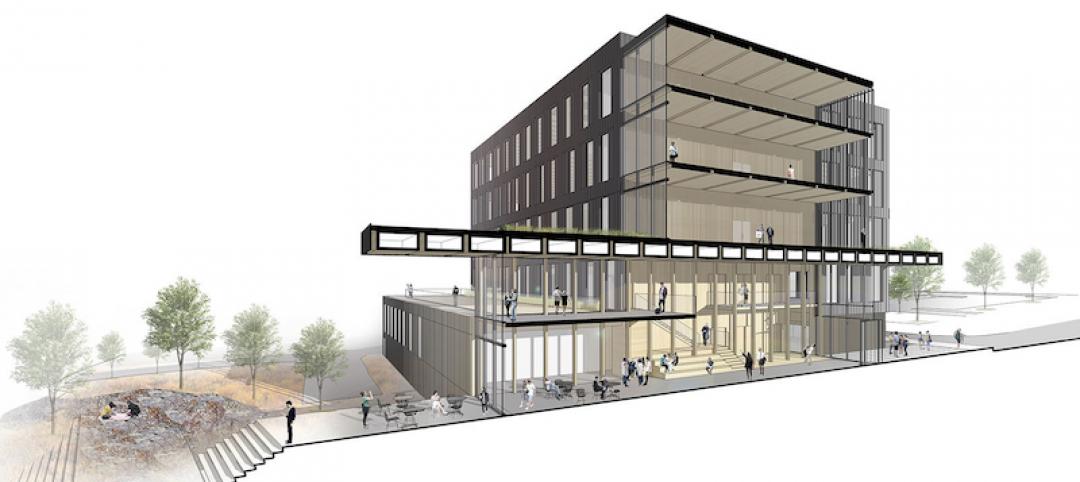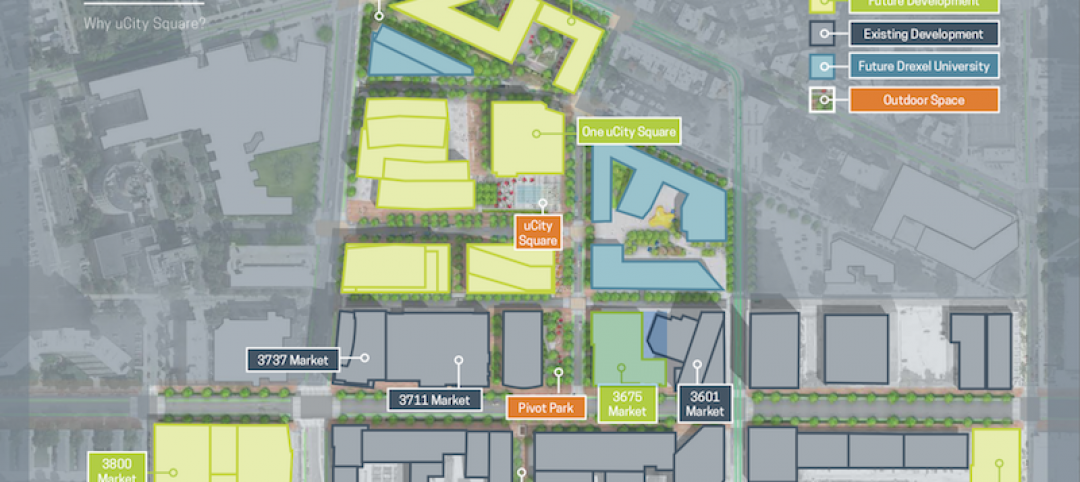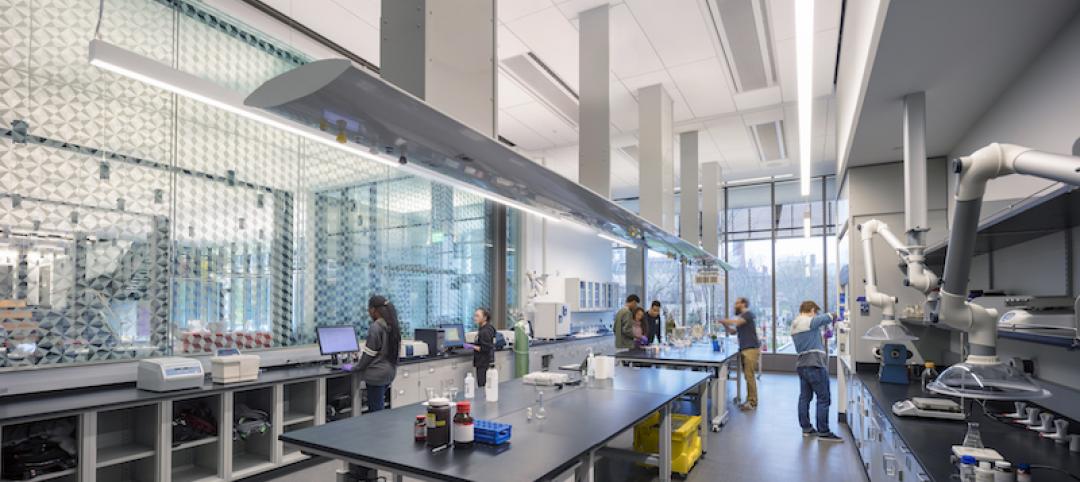The new $66 million-dollar Plant Sciences Building has officially opened on the Washington State University campus in Pullman, Wash.
The 82,437-sf building is the latest addition to the V. Lane Rawlins Research and Education Complex and will support Washington’s $51 billion food and agriculture industry by providing a modern research venue for faculty and students in the Institute of Biological Chemistry, WSU’s Molecular Plant Science Program, and portions of the Departments of Horticulture, Plant Pathology, and Crop and Soil Sciences.
The building’s exterior reimagines the red-brick campus vernacular in a new architectural approach using a high-performance precast concrete facade panel system clad with a sculpted, red-brick veneer. These panels comprise structure, insulation, weather barrier, interior, and exterior finishes within a single prefabricated component.

The facility will be a social and interdisciplinary heart for the research complex. It is designed for flexibility and hosts infrastructure for a variety of research needs beyond the College of Agricultural, Human, and Natural Resource Sciences. At the western entry, the building’s cantilevered composition frames a new grand entry for the whole complex.
A four-floor staircase encourages vertical circulation and provides visual connection between floors. At every level, centralized social spaces link circulation elements with the REC’s central spine, designed to fuel spontaneous collaboration within the communal core.
The interior arrangement of laboratories is designed to support efficient and flexible research. The modular laboratories can be easily rearranged to respond to the changing needs of research throughout the building. Offices to the north of the laboratories for Principal Investigators are interspersed with open work areas for graduate researchers. To the south of the laboratories are a series of modular support spaces that accommodate a variety of specialized research equipment within easy reach of the adjacent lab benches.
The project was designed and constructed by the design/build team of Skanska and LMN Architects.
Related Stories
Laboratories | Jun 24, 2020
CDC set to build the most advanced high containment laboratory in the country
Flad Architects, Page Southerland Page, and WSP will plan, program, and design the HCCL.
University Buildings | Jun 3, 2020
Renovation can turn older university buildings into high-performing labs
David Miller of BSALifeStructures offers technical advice on renovation of college and university laboratories and scientific research facilities.
Giants 400 | Aug 13, 2019
2019 Science + Technology Giants Report: Operational flexibility is a must for S+T buildings
The science and technology (S+T) sector is arguably the industry’s most complex because it caters to a diverse clientele with specific priorities and imperatives, according to Building Design+Construction's 2019 Giants 300 Report.
Laboratories | May 21, 2019
Georgia Tech Research Institute adds 350,000 sf of specialized tech facilities
McCarthy Building Companies with Flad Architects acted as the design-build team.
Laboratories | Apr 23, 2019
Translational health science environments: 6 strategies for open innovation and knowledge transfer
Simply putting researchers and clinicians in the same building with hopes that serendipitous collaborations will ensue will often not yield the outcomes organizations seek.
Sustainable Design and Construction | Apr 9, 2019
One of the largest zero-carbon, net-zero buildings is rising in Spokane
Catalyst will be part of an innovation hub, with Eastern Washington University as its main tenant.
Laboratories | Apr 1, 2019
The Karolinska Institute’s new laboratory building
C.F. Møller Architects designed the building.
| Mar 21, 2019
Preserving Edison's "Corporate" R&D Lab in West Orange, N.J.
Report on Thomas Edison's West Orange, N.J., Laboratory.
Mixed-Use | Oct 25, 2018
Philadelphia’s uCity Square kicks off major expansion drive
This innovation center has several office, lab, and residential buildings in the works.
University Buildings | Jul 5, 2018
Brown University’s Engineering Research Center increases the university’s School of Engineering lab space by 30%
KieranTimberlake designed the facility and Shawmut Design and Construction was the general contractor.



